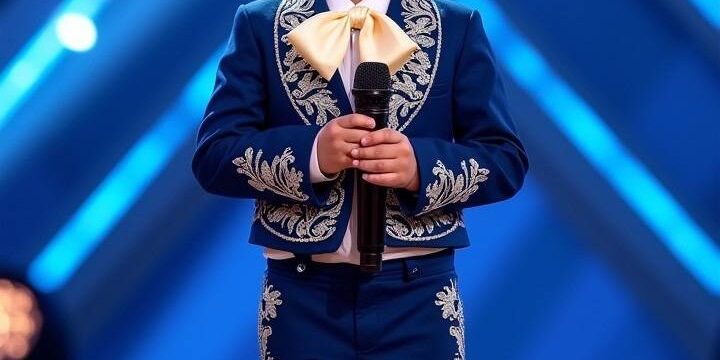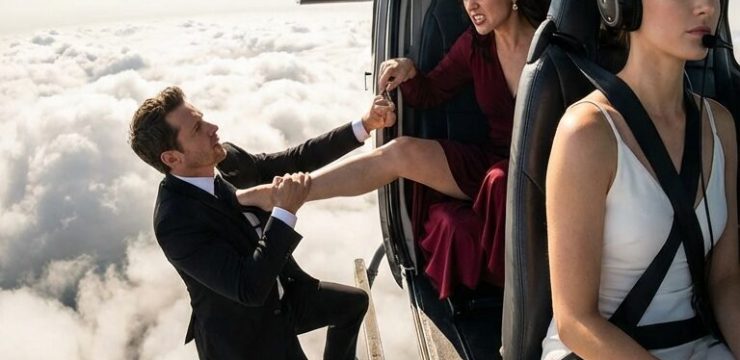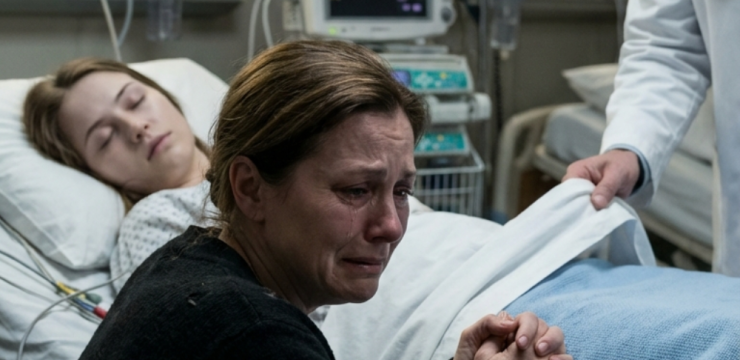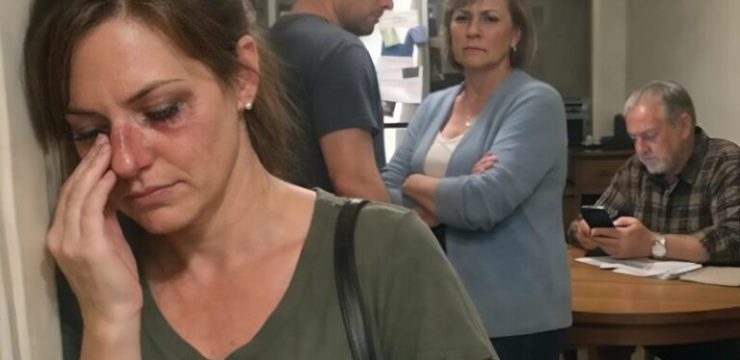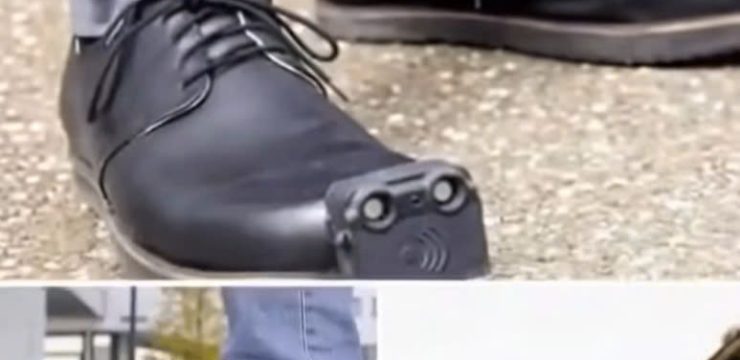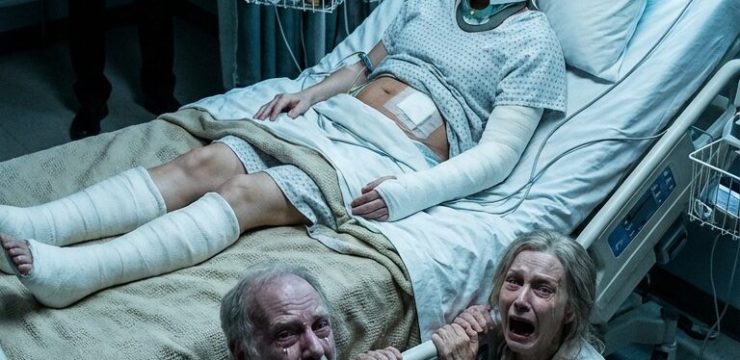There are few sights more heartbreaking than witnessing a creature built for freedom forced into pain. Horses, especially wild stallions, embody power, grace, and the raw spirit of the wilderness. Their gallops across open plains symbolize unrestrained life and harmony with nature. Yet, in some corners of rural Romania, this image is shattered by the grim reality of horses restrained by chains—rusted, heavy, and cruelly wrapped around their legs, robbing them of movement and dignity.
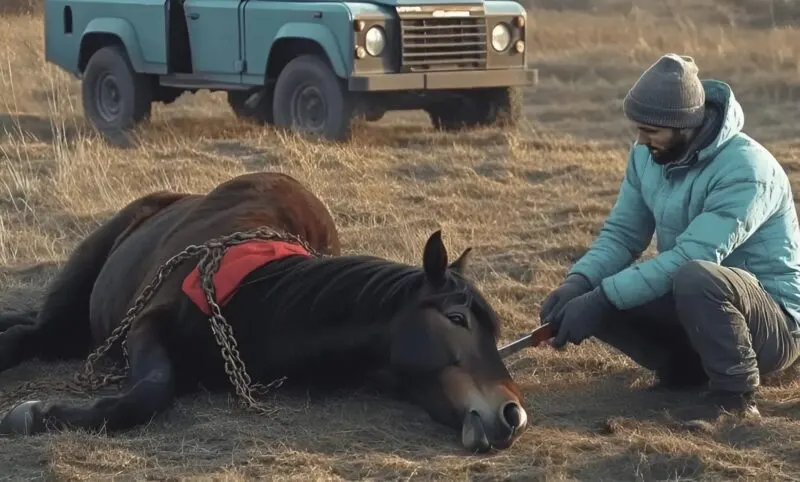
It was on a crisp morning in the Danube Delta that veterinarian Dr. Ovidiu Rosu came face-to-face with one such tragedy. A man known for his gentle approach and deep respect for animals, Ovidiu was no stranger to hardship, but what he encountered that day tested both his heart and his skill. Across a fog-covered marsh, he spotted a stallion—majestic yet broken. The animal stood motionless, trembling slightly, its eyes filled not with the fiery defiance of a wild horse but with exhaustion and fear. Chains dug deep into its flesh, rust and pain merging into one cruel prison. The sight made Ovidiu’s chest tighten; this proud being had been robbed of the very essence of what it meant to live free.
Determined to help, Ovidiu approached cautiously. Every movement had to be measured—one wrong step could send the terrified horse bolting. With soft words and outstretched hands, he whispered, “Easy, big guy. I’m here to help you.” His voice carried the calm of someone who understood that trust is earned, not taken. Slowly, he extended pieces of apple, a simple yet powerful peace offering. The stallion’s nostrils flared as he took in the scent, his body tense yet curious. Bite by bite, he accepted the gesture, each one a small surrender to hope.
When Ovidiu finally moved closer, the animal’s legs trembled under the weight of pain and exhaustion. Then, almost as if sensing kindness, the stallion lay down on the grass—a moment of both defeat and trust. Kneeling beside him, Ovidiu examined the thick, rusted chains coiled around the animal’s legs. Every link was fused with corrosion, cutting deep into the skin. With pliers and bolt cutters in hand, he began the grueling task of freeing the creature. Metal resisted with each attempt, forcing Ovidiu to pause often, speaking softly as he worked: “Just a little longer… you’ll be free soon.”
Each click of the cutters echoed across the silent marsh. The struggle felt endless. Sweat mingled with the chill of morning air as Ovidiu pried apart each stubborn link. The horse shifted, flinched, then stilled again, almost as if understanding that pain was the price of freedom. Finally, with one decisive crack, the last chain broke apart, tumbling heavily to the ground.
For a brief moment, time stopped. The horse didn’t move. His gaze fixed on the pile of broken chains as if unable to believe the torment was truly over. Ovidiu stepped back, giving him space. The stallion’s chest heaved; his legs quivered as he rose slowly to his feet. The numbness began to fade as blood and strength returned. Standing tall once more, the animal seemed to rediscover the spirit that had been buried beneath months—perhaps years—of restraint.
Then, something extraordinary happened. The stallion turned his gaze toward Ovidiu, eyes no longer clouded with fear but shining with life. He took a slow step forward, then another, and gently pressed his muzzle against the veterinarian’s shoulder. It was not fear or aggression—it was gratitude, pure and wordless. Ovidiu froze, overwhelmed by the intimacy of that silent thank-you. In that instant, the divide between man and animal disappeared. The bond they shared, born from pain and compassion, was unbreakable.
Tears welled in Ovidiu’s eyes as he stroked the stallion’s neck, whispering softly, “You’re free now.” The horse remained for a heartbeat longer, then lifted his head high, nostrils flaring as he took in the scent of open air. His muscles tensed, his mane caught the wind, and with a sudden burst of energy, he galloped away. The sound of his hooves pounding against the earth grew fainter until it was swallowed by the misty horizon. Ovidiu watched, smiling through tears, as the stallion vanished into freedom—strong, proud, and whole once again.
In that quiet aftermath, only the fallen chains remained, half-buried in the grass—a haunting reminder of human cruelty and the resilience of the spirit. Ovidiu gathered his tools slowly, his heart full. What he had witnessed was more than the liberation of a single animal; it was a powerful lesson about empathy, courage, and the simple truth that compassion can heal even the deepest wounds.
Stories like this remind us that freedom is not merely the absence of restraint—it’s the right of every living being to exist without suffering. No creature, whether wild or domestic, should ever feel the weight of chains or the sting of fear. The image of that stallion running freely through the Delta is a testament to what humanity can achieve when kindness leads the way.
Dr. Rosu’s act of compassion spread quickly, inspiring countless people across the world. Videos of the rescue captured hearts on social media, reminding viewers that one person’s courage can ripple far beyond a single act. For many, it became a symbol of hope—proof that empathy can cross boundaries of language, species, and circumstance.
As the sun set over the wetlands that day, Ovidiu looked out across the plains, imagining the stallion running under the vast Romanian sky. Perhaps the horse would never remember the man who freed him—but Ovidiu knew he would never forget that moment. Because sometimes, the purest gratitude needs no words at all; it shines in a glance, a touch, or a gallop toward freedom.
Let this story serve as a reminder: a single act of kindness, no matter how small, can change the course of another being’s life. And in doing so, it changes ours too. Compassion, like freedom, is meant to be shared.
